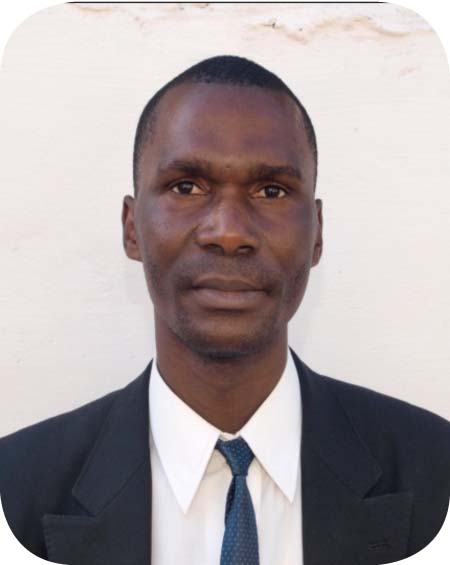
The Constitution of the Republic of The Gambia in its section 19, 21, 23, 24 and 33 provides important regulatory framework for the investigation and prosecution of crimes in The Gambia.
SECTION 19:
Section 19 protects the right to personal liberty by prohibiting arbitrary arrests and detentions. Section 19 stress that, a person cannot be subjected to arbitrary arrest and detention.The term arbitrary would mean an arrest or detention that includes elements of inappropriateness, injustice, and lack of predictability and due process of law. An arrest or detention may be arbitrary if the law is arbitrary or if the actions of the arresting police officer are arbitrary. Thus, an arrest or detention which is lawful may nonetheless be arbitrary under section 19 of the Constitution if the law under which the person is arrested and or detained is vague, overbroad, or is in violation of other vested rights in the Constitution. For example, the deprivations of liberty that is motivated by discrimination would constitute an arbitrary act and therefore offend section 19(1) for violating the individual’s right to freedom from discrimination set out in section 33 of the 1997 Constitution.
Section 19 (2) of the Constitution, a person arrested, restricted or detained is entitled to be informed within three hours, in a language he understands, of the reasons of his arrest or detention and of his right to consult a legal practitioner.
Where a person is arrested upon reasonable suspicion of his having committed or being about to commit a criminal offence and such a person is not released, he must be brought before a court within seventy-two hours after the arrest,and that person shall not be further detained.
Further, any person who is arrested and or detained is entitled to a fair trial within a reasonable time otherwise that person should be released either unconditionally or upon reasonable conditions. There are two issues involved here; the issue of fair trial and the issue of reasonable time.
In Gamstar Insurance Company Ltd. v. Musa Joof,the Gambian Court of Appeal held that the right to fair trial does not mean a right to a protracted trial. It means a reasonable opportunity to present or state one's case within a reasonable time. This definition was broadened in the case of Ousman Baldeh & Riad Azziz v. Tijan Jallowwhere the Gambia Court of Appeal went further to hold that a fair hearing (trial) is one that does not contravene the principles of natural justice. In the GAMSTAR CASE (Supra) the court held that what is reasonable time will depend on the peculiar circumstances of each case.
In June 1990, the applicants were again put before a Magistrate court for trial on charges which did not include the charge of cultivation of cannabis. The applicants were convicted on those other charges and sentenced to a fine. Subsequently, on 7 January 1992, the applicants were again arrested by the Gambian Gendarmeries and put before another Magistrate court for trial in respect of the drug cultivation charge. Whilst the proceedings were pending, the applicants brought a motion before the court for a declaration that their right to a fair trial within a reasonable time had been infringed contrary to section 20(1) of the Gambia Constitution (1970).
The question of the right to a fair trial within a reasonable time of a person arrested for committing a crime was considered by the Gambian Supreme Court (High Court) in the case of Clarke & Garrison v. Attorney General. The applicants, United States citizens were arrested on 4 February 1990. On 8 February, they were arraigned before a Magistrate on several charges which included the cultivation of the plant cannabis sativa, contrary to section 9(1) (c) of the Dangerous Drugs Act. The trial was abandoned by the prosecution. The applicants were again arraigned before the same court on 2 April 1990 on the same charges. Proceedings were later terminated by the prosecution entering a nolle prosequi.
On the facts of the case, the court held that the applicants' right to a fair hearing within a reasonable time had been infringed; that on giving a generous and purposive construction to section 20(1) of the 1970 Constitution (the same more or less as section 19(3) (b) and (5) of the 1997 Constitution) the benefit of that section should accrue to any person firmly accused of a criminal offence whether or not he had been charged before a court.
In effect, the court held that the time for calculating the period of unreasonable delay should commence from the date of arrest and not the date the accused was put before court.
SECTION 21:
Section 21 protects the right to security of the person by prohibiting inhuman treatment such as torture or inhuman degrading punishment or other treatment.
First, it shall not be lawful for a criminal suspect to be subject to torture in any way either during arrest or while in detention. The term “torture” would generally cover any act which causes severe pain or suffering and is intentionally inflicted on a person to obtain information or a confession, for an act that person has committed or is suspected of having committed, or to intimidate or coerce that person, or for any reason based on discrimination of any kind at the instigation of, or with the consent or acquiescence of, a public official or other person acting in an official capacity. Torture encompasses a variety of methods including severe beatings, electric shock, sexual abuse and rape, prolonged solitary confinement, extreme hard labour, near drowning, near suffocation, mutilation, and hanging for prolonged periods. Thus, while reasonable force is required to compel submission to an arrest; no force than is reasonable proportionate is in the circumstance will offend section 21.
Second, in passing sentence on a convicted criminal, it shall not be lawful for the Court to impose a punishment that is cruel or inhuman. In this regard the imposition of corporal punishment of 30 strokes of cane on a 75 year old convict in terms of s. 30(1) of the Criminal Code, will not only violate s. 30(2) (c) of the same Code, but would also amount to cruel and inhuman punishment. Admittedly, the corporal punishment of whipping the convict generally appears to be in conflict with the provisions of s. 21 of the Constitution.
SECTION 23:
Section 23 protects the right to privacy by prohibiting searches of the person or his home except as otherwise directed by a competent judicial authority or where delays in obtaining such judicial directives may occasion grave prejudice and in strict compliance with law that guarantees protection from abuses.
The content of this right raises at least two issues:
First, a search of a person or his home may only be conducted under the power of a warrant issued by a competent judicial authority. Second, a warrantless search may only be conducted if it can be demonstrated that delays in obtaining a warrant posed a serious danger of prejudicing the object of the search.
SECTION 24:
Section 24 protects the right to fair trial by providing, inter alia, that, the accused be informed immediately in a language he understands as to the nature of offence charged; no person shall be convicted for criminal offence unless the offence is defined and the penalty prescribed by law; an accused be afforded adequate facilities for his defence; and the general question of the right of an accused person to be given reasons by the trial court for convicting him of a criminal offence.
Section 24 also provides the constitutional framework for the special pleas of autre fois convict or autre fois acquit, and ‘pardon’, and captures the presumption innocence and the right from self-incrimination in criminal investigations and trials. In addition, section 24 announces two important principles: the principle of legality and the principle of non-retroactivity of crime. First, a crime is not a crime unless the law unless otherwise expressly provided by law. Therefore, a person cannot be investigated and or prosecuted for actions unless those actions were punishable as crimes under the laws of The Gambia at the time such actions occurred. This also means that no penalty or punishment can be imposed on a convicted person which is more severe in degree or description than the maximum penalty that could have been imposed for that offence at the time of the commission of the offence. The mandatory right to counsel in capital offence cases further strengthens the fair trial rights of the accused.
The second principle, known as the principle of non-retroactivity of crime, means that no ex-post facto laws or punishments are allowed. An ex-post facto law is one that is passed by the National Assembly and which comes into force after a person takes certain actions. For example, imagine that in June 2010, a man sells his cow to another man for D10 000. Then, in October 2010, the National Assembly passes a law that says that a cow may not be sold without certification from the Ministry of Livestock and Fisheries that it is free of diseases. The penalty for selling the cow without this certification is a fine of D5000. Under the principle that no ex-post facto laws may be imposed, the man may not be charged with violating the law passed in October 2010 because his actions were not criminal in June 2010, which was when he committed those actions. Therefore, a law cannot be applied retroactively to punish conduct that was not criminal at the time of its commission.
The same prohibition against ex-post facto laws applies to punishments. For example, imagine that the law was passed in May 2010, rather than October 2010, so that it was in force when the man sold the cow in June. Then, in July 2010, a month after the man has been charged with selling the cow without the proper certification, the National Assembly passes a new law changing the penalty from D5000 to D10 000. The man cannot be made to pay the higher fine because the penalty codified in the law at the time he committed the offense was only D5000.
The only exceptions to the rule of ex-post facto laws are when a law has been amended to reduce the punishment for an offense or re-categorize the offense as a lesser offense or when the law has been amended to no longer consider the actions a crime under the laws of The Gambia.
Apart from the Constitution, as the main source of law, the power to pass laws that regulates criminal trials is vested in the National Assembly; provided always that such laws do not contravene any provisions of the Constitution.
Thomas Fuad Touray (LLB) is the Executive Director of the West African Institute for Legal Aid (WAILA)
Read Other Articles In Article (Archive)
PLANTED BY.
Jul 29, 2009, 9:58 AM



